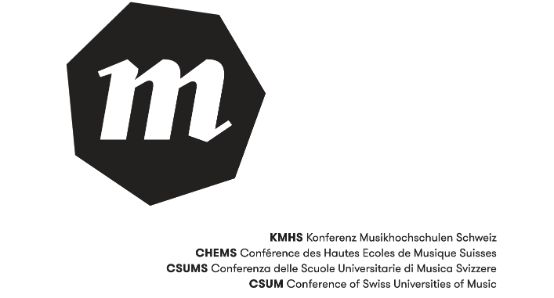The popular initiative "No-Billag" in the mirror of Swiss music academies
The so-called "No Billag Initiative" endangers Swiss cultural creativity. Representatives of Swiss music academies take a stand in the interest of music - in a discussion and with statements on the cultural effects and possible consequences.

Peter Kraut - The "No Billag Initiative" is a direct attack on domestic music creation, although this is not clear at first glance. The initiative should correctly be called "No SRF" because the constitution prohibits the federal government from operating its own radio and TV stations (Article 6: "The federal government shall not operate its own radio and television stations in times of peace"). However, if we were the only Western European country that no longer had public broadcasters, which are required by law to provide independent and balanced information, we would lose an important and useful link in many areas of funding. The federal government does not only promote culture through its constitution and laws, but also sport, linguistic diversity, agriculture, basic research, environmental protection, monument preservation and much more. The documentation of these constitutional mandates by means of radio programs and TV formats (such as cultural programs, sports broadcasts, discussions, reports, etc.) is fundamental for political discourse. If SRF no longer reports on important areas of public life that must be promoted in accordance with the constitution, then we can no longer form an opinion on whether these tasks are meaningful and how they might need to be changed. (And it cannot be assumed that private media will step into this gap, as they primarily have a commercial mandate). Our democracy itself would therefore massively curtail one of its most important prerequisites and development opportunities - public debate. This is why the "No Billag Initiative" is so dangerous and anti-democratic.
It will be particularly critical for music, if only because SUISA, the Swiss copyright society for music, will lose almost CHF 40 million in revenue that it receives from SRF broadcasts. This will have a direct impact on Swiss authors. But also indirectly, because without SRF, the diversity of music creation will be much less well documented. No other medium reports on the Swiss music scene as extensively and in such detail as SRF2. Local radio stations that promote local music would disappear. Ticino or Romansh music would hardly be heard any more. In addition, without SRF, many important film productions (such as Tatort, Wilder, The Undertakerdocumentaries, etc.), which provide important platforms for the Swiss film and music industry. This list of negative effects of the initiative could be extended. "No-Billag" does not solve a single problem and makes no contribution to the further development of the cultural landscape, but merely relieves individuals and companies of media fees, which, like taxes, represent a central and solidary resource for the functioning of our society.
The strong statements against the initiative from musicians as diverse as The Young Gods, Peter Reber, Gotthard and Andrew Bond prove that "No-Billag" would be disastrous for the entire music landscape. Anyone who cares about the diversity of Swiss music creation must reject this initiative.
Peter Kraut
... is deputy head of the music department at the Bern University of the Arts HKB/BFH








